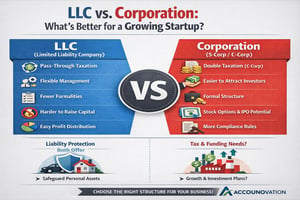20+ Costly Mistakes to Avoid When Selling Your Business

Selling your business is one of the most significant financial decisions you’ll ever make. Whether you’re retiring, shifting industries, or seeking a strategic exit, getting it right requires preparation, timing, and execution. Unfortunately, many business owners lose significant value—or lose deals altogether—because they overlook key parts of the process.
Below are 20+ common mistakes sellers make when exiting a business. Avoiding these missteps can help you protect your valuation, attract the right buyers, and close a successful deal on your terms.
1. Failing to Plan Ahead
Planning your exit at least 1–2 years in advance gives you time to clean up your financials, build up EBITDA, and implement operational improvements. Without this lead time, you may be forced into reactive decisions or accept unfavorable terms. A clear roadmap allows you to sell from a position of strength. Proper strategic financial planning ensures you align your business goals with market readiness.
2. Not Knowing What Your Business Is Worth
A lack of valuation awareness can lead to missed opportunities or inflated expectations. Professional valuation firms consider industry multiples, cash flow, growth potential, and asset value. Knowing your worth empowers smarter negotiations and allows you to set realistic goals. A solid understanding of margin analysis and financial KPIs can strengthen your position.
3. Poor Financial Records
Disorganized financial statements raise red flags for buyers. Clean, accurate, and GAAP-compliant books show credibility. If you're not already doing monthly reconciliations or producing reliable P&Ls, now is the time to start—or work with a fractional CFO to prepare your financial house. See how accounting automation can streamline this process.
4. Ignoring Normalized Earnings
You’ll need to adjust your financials to reflect what the business would look like under new ownership. This means removing owner perks, one-time expenses, and personal expenditures. Buyers want to see sustainable profit, not inflated costs.
5. Waiting Too Long to Sell
Timing is everything. If your business is declining, buyers will discount the price heavily. Selling during a growth phase—when financial performance is strong and the future outlook is positive—can add significantly to your valuation.
6. Neglecting Business Curb Appeal
Like selling a house, first impressions matter. Tidy financials are great, but physical presentation counts too. Clean facilities, modern equipment, updated branding, and well-maintained websites can improve buyer perception.
7. Failing to Identify Problems
Legal issues, customer churn, employee disputes, or compliance problems must be addressed before going to market. Buyers will uncover them during due diligence, so it’s better to fix or disclose them proactively with supporting documentation.
8. Trying to Sell Alone
Selling without professional guidance is risky. Advisors can help you price accurately, identify qualified buyers, and negotiate better terms. A skilled M&A advisor, attorney, and accountant can save you time—and often earn you more in the final deal.
9. Overreliance on One Customer or Vendor
If one client makes up more than 30% of your revenue, or if a critical vendor can’t easily be replaced, buyers may see risk. Building a more diversified revenue stream helps you avoid valuation discounts.
10. Forgetting About Tax Implications
The way you structure the deal—stock vs. asset sale—can impact how much money you actually keep. Work with tax professionals to model different deal structures, and start planning far in advance to reduce tax exposure. Don’t overlook potential manufacturing tax credits that could enhance your valuation.
11. Overlooking Personal Transition Planning
Many owners focus on selling the business and forget about what happens next. Consider how the proceeds will support your lifestyle, estate goals, and retirement. Selling is not just a business decision—it’s a personal financial transition.
12. Failing to Understand Buyer Types
Different buyers have different goals. A strategic buyer may want your customer list or IP, while a private equity firm may focus on financials and scalability. Tailoring your pitch to match buyer intent improves your deal success.
13. Not Preparing Key Staff
Key employees may fear for their jobs during a transition. Buyers will want to know that the team will stay and operations won’t be disrupted. Create incentives for leadership to stay post-sale and include them in succession planning.
14. Focusing Only on Price
Deal terms matter as much as the headline number. A lower offer with favorable terms (e.g., cash upfront, limited earn-outs) might be better than a high offer with strings attached. Consider payment structure, liabilities, and post-sale involvement.
15. Letting Emotions Drive Decisions
It’s natural to feel attached to your business, but decisions during a sale must be logical, not emotional. Avoid overpricing, micromanaging negotiations, or taking buyer feedback personally. Stay focused on your long-term goals.
16. Not Marketing the Business Effectively
You need to get your opportunity in front of the right buyers. This may involve private networks, brokers, and targeted outreach. A passive approach leads to limited offers. Active marketing improves competition and pricing.
17. Skipping Pre-Due Diligence
Conduct internal due diligence before going to market. That means gathering contracts, licenses, compliance documents, and verifying financial accuracy. This ensures a smooth buyer experience and prevents delays.
18. Ignoring Industry Benchmarks
Buyers compare your performance to others in the industry. Understanding your metrics relative to peers—like gross margin, EBITDA margin, or customer retention—can help you justify your asking price.
19. Underestimating the Timeline
Selling a business is a marathon, not a sprint. It can take 6–12 months from listing to close, especially if you're waiting on the right buyer. Building realistic timelines helps reduce pressure and allows for better preparation.
20. Assuming a Sale Will Happen
There are no guarantees in M&A. Prepare for the possibility that a deal falls through. Keep running your business efficiently, maintain profitability, and treat buyers as options—not certainties.
21. Failing to Maximize EBITDA
Buyers often use EBITDA as a key valuation driver. You can increase EBITDA by reducing discretionary spending, eliminating inefficiencies, and increasing pricing where possible. A few small changes can make a big impact on final deal terms. Conducting a financial health check can help identify quick wins.
22. Disregarding Working Capital Targets
Buyers typically require a “normal” level of working capital in the deal. If your business has low inventory or high AP, the buyer may lower their offer or request post-closing adjustments. Understand what a reasonable target looks like in your industry.
23. Not Protecting Confidential Information
Until NDAs are signed, sensitive business data (like customer lists, pricing strategies, or proprietary processes) should be kept secure. Premature disclosure could damage competitive position or internal morale.
24. Skipping Professional Representation
From LOI to closing, the process is full of legal, financial, and operational complexity. Having a team of professionals in your corner—from CPAs to legal counsel—helps protect your interests and reduce costly oversights.
Final Thoughts: Sell Smart, Not Fast
Selling your business is a process—not an event. Taking shortcuts, delaying prep, or misunderstanding buyer psychology can cost you dearly. But with proper planning, expert guidance, and a clear understanding of what buyers want, you can exit on your terms and secure the financial outcome you deserve.
Need help preparing for a sale? Accounovation works with manufacturers and business owners to organize financials, boost valuation, and guide smart exits. Contact us today to start planning your exit strategy.







